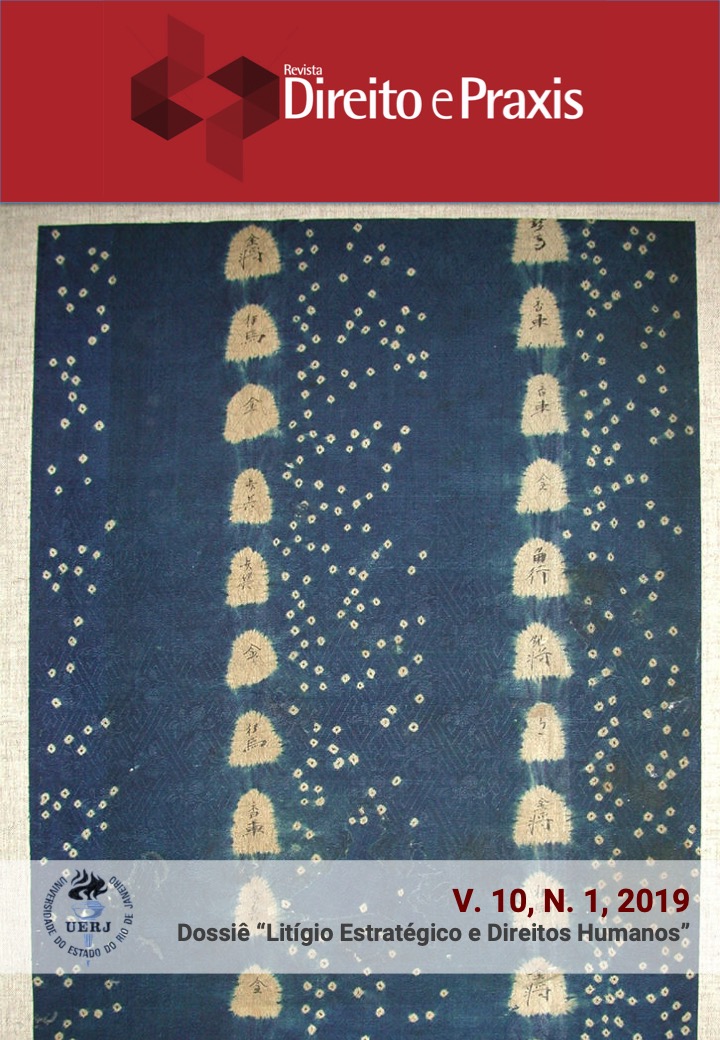Where do they speak from? Positions about the new IMF contractual proposal for ordering sovereign debt restructurings / ¿Desde onde falam? Posições em torno da nova proposta contratual do FMI para ordenar as reestruturações da dívida soberana
Palavras-chave:
Reestruturação da dívida soberana (RDS), Fundo monetário internacional (FMI), Cláusulas de ação coletiva (CACs), Cláusulas Pari Passu. / Sovereign debt restructuring (SDR), International monetary fund (IMF), United nations (UN), Collective action clausesResumo
DOI: 10.1590/2179-8966/2018/30095
Resumo
O debate sobre Reestruturações da Dívida Soberana (RDS) está no centro da agenda de políticas econômicas globais. Em 2014, o FMI apresentou uma nova proposta contratual –como parte integrante de um conjunto de reformas– para organizar esses processos e permaneceu fora das discussões destinadas a elaborar um mecanismo estatutário dentro da ONU, o que acentuou as divisões existentes neste campo. Ao contrário da maior parte da literatura especializada que analisa os limites e potencialidades desta proposta do FMI em termos abstratos, este artigo faz isso através de um «jogo de posições nas disputas». Esta nova maneira de abordar o debate sobre RDS, que começa explicitando os pressupostos e os interesses desde onde os agentes falam neste campo, possibilita explicar por que existem não só opiniões diferentes, mas diretamente opostas, sobre o mesmo fato social (a nova iniciativa do FMI). Argumenta-se que esta proposta supera os modelos contratuais existentes, mas deixa aberto uma margem de incerteza sobre a correta organização das reestruturações futuras: a profundidade e as implicações de tal incerteza no mercado da dívida soberana assumem significados particularmente diferentes de acordo com a cosmovisão de cada uma das posições abordadas.
Palavras-chave: Reestruturação da dívida soberana (RDS); Fundo monetário internacional (FMI); Cláusulas de ação coletiva (CACs); Cláusulas Pari Passu.
Abstract
The Sovereign Debt Restructuring (SDR) debate is at the center of the global economic political agenda. In 2014, the IMF issued a new contractual proposal –as an integral part of a set of reforms– to organize these processes but remained outside of the discussions that promoted the creation of an SDR statutory mechanism at the UN, something which marked the existing divisions in the SDR field. Unlike specialized scholars that analyze the limits and potentialities of the IMF contractual proposal in abstracto, this article does it by means of a «game of positions in dispute». This new way of approaching the SDR debate, which starts by making explicit the assumption and interests from where the agents in this field speak, helps to explain why there are not only diverse but directly opposite opinions about the same social fact (the IMF new proposal). It is argued that this proposal improves the existing models of contractual clauses, but it leaves a margin of uncertainty about the correct organization of future restructuring processes: the Rev. Direito e Práx., Rio de Janeiro, Vol. XX, N. X, 2018, p. XX-XX. Alejandro Gabriel Manzo DOI: 10.1590/2179-8966/2018/30095| ISSN: 2179-8966 3 depth and implications of this uncertainty in the sovereign debt market acquire particularly different meanings according to the worldview of each of the addressed positions.
Keywords: Sovereign debt restructuring (SDR); International monetary fund (IMF); United nations (UN); Collective action clauses (CACs); Pari Passu Clauses.
Downloads
Downloads
Publicado
Como Citar
Edição
Seção
Licença
Os textos são de exclusiva responsabilidade de seus autores.
É permitida a reprodução total ou parcial dos artigos da Revista Direito e Práxis, desde que citada a fonte.
Este trabalho está licenciado sob uma Licença Creative Commons 4.0, Atribuição-Sem Derivações.
Esta licença permite copiar e redistribuir o material em qualquer suporte ou format para qualquer fim, mesmo que comercial, desde de que citada a autoria original.
This work is licensed under a Creative Commons Attribution 4.0 International License.




